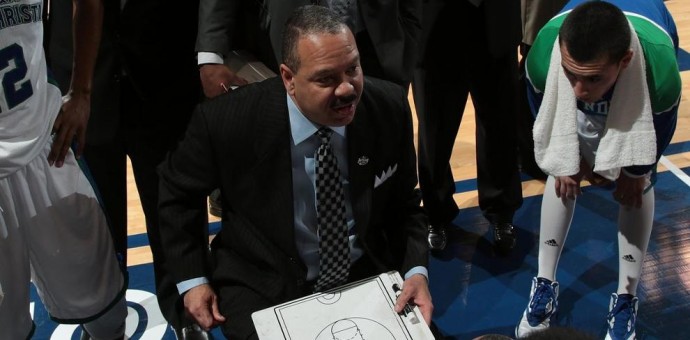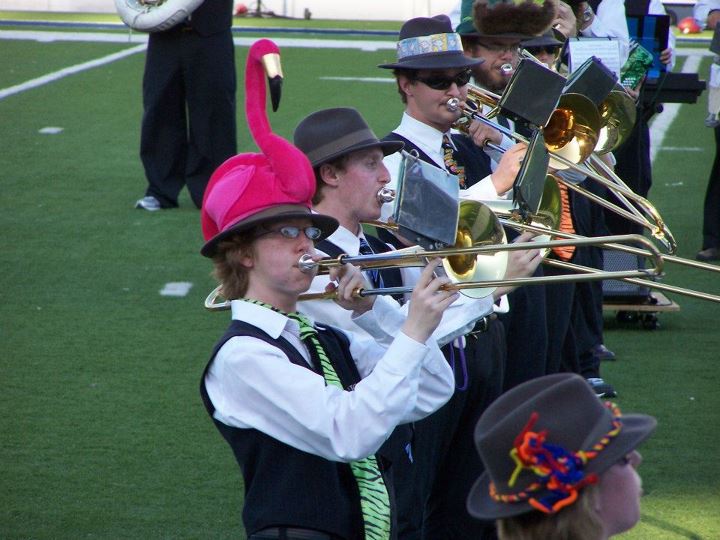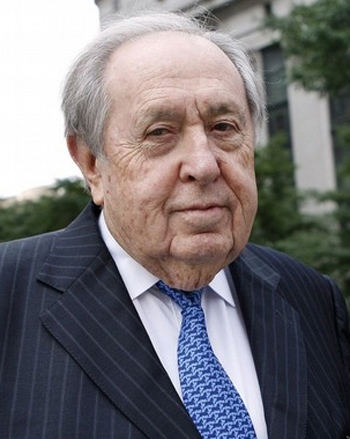 Art Briles resigned last week as head coach of the University of Houston football program and accepted the same position at Baylor University and the change generated the usual knashing of teeth some sectors of the UH community that typically follows such moves.
Art Briles resigned last week as head coach of the University of Houston football program and accepted the same position at Baylor University and the change generated the usual knashing of teeth some sectors of the UH community that typically follows such moves.
However, Briles’ move surprised no one, except for perhaps a few folks in West Texas who figured that he would hold out at Houston until Mike Leach at Texas Tech moved on and Briles could lay claim to his dream job.
Although Briles was reasonably successful at Houston, he never really seemed at home as the Cougars’ coach.
Most folks don’t realize that Houston’s program is still relatively young by college football standards and Briles never was comfortable with the multi-tasked job of leading the Houston program into a Bowl Championship Series conference.
The Houston program burst on to the national stage during the 25 year tenure of Bill Yeoman, the outstanding and innovative coach of the Cougars from 1960-85. When UH hires a new head coach to replace Briles, that will be the sixth head coach in the 22 years since Coach Yeoman retired. And during that span, there have been even more UH athletic directors than football coaches.
In many ways, the UH football program reflects the struggles of the University overall.
As noted repeatedly on this blog, the University of Houston is a relatively young state research university (only since the 1963) that the State of Texas has consistently shortchanged in financial support in comparison to Texas’ two flagship research institutions, the University of Texas at Austin and Texas A&M University.
Inasmuch as the UH football program is also relatively young in comparison to the UT and A&M programs, it pales in terms of fan and financial support in comparison to its older and better-endowed competitors.
Nevertheless, Houston’s football and other athletic programs competed quite well with its better-endowed neighbors during the 20 year period in which UH participated in the old Southwest Conference. As with the University of Houston generally, the UH athletic program has produced more “bang for the buck” than any other athletic program in Texas over the past 50 years.
Despite that legacy, when Briles took over in 2003, Houston’s football program had been lagging badly for a decade coinciding with the demise of the Southwest Conference.
Former Coach Yeoman campaigned hard at the time to have UH hire his former player Briles (who was a Texas Tech assistant coach at the time), even though it was clear even then that Briles had his eye on the Texas Tech head coaching job. Briles has been angling for the Tech head job for years because Tech Coach Leach apparently has been trying to get out of Lubbock almost continuously since he got there.
Unfortunately for Briles and other prospective coaches for the Tech job, Leach apparently doesn’t seem to perform nearly as well in those pre-hiring interviews as he does while directing his high-powered offense on Saturday afternoons.
Thus, when the Baylor job came open, Briles elected to take it and stake his claim to a program in a Bowl Championship Series conference.
And that’s the real difference in the two jobs. Houston has the potential to be one of the top non-BCS conference programs, but Baylor is already in a BCS conference. Thus, Baylor has the advantage of having access to a share of the considerable sums of money that the BCS pays to the BCS-member conferences.
As a result, even a downtrodden program such as Baylor in a BCS conference is likely to have more resources than a potentially better-situated but non-BCS conference program such as UH, at least for the time being.
My sense is that Briles is a reasonably good hire for Baylor. He is West Texas through and through, and that should fit in well in Waco. He did a good job at UH, although his teams’ offensive flair was offset by often-poor defensive play.
Briles took over a UH program that had gone 8-26 in the previous three seasons, including an ugly 0-11 slate in former UH Coach Dana Dimel’s second season in 2002. Briles immediately brought in talented freshman QB Kevin Kolb, around whom he built his innovative offense, which includes variations on the spread, the Wing-T and the Single Wing offenses.
Briles and Kolb led the Cougars to a 7-5 record in that first season, including a close bowl loss to Hawaii. In 2004, the Cougars took a step backward during an uninspired 3-8 season, but bounced back the following season when they went 6-6 with a blowout bowl loss to Kansas in the Fort Worth Bowl.
In 2006, everything came together for Briles, Kolb and the Coogs as they went 10-4, won UH’s second Conference USA championship and lost the Liberty Bowl in a close game to South Carolina.
This past season, Briles led the Coogs to an 8-4 record and Texas Bowl berth in his first “after-Kolb” season, although Houston’s progress appeared stunted late in the season around the time the Baylor job came open.
I don’t know if Briles’ interest in the job had anything to do with that downturn, but Briles and a number of key members of his staff have bailed out on coaching the Cougars in the Texas Bowl. I’m reasonably sure that has not left a pleasant taste in the mouth of UH Athletic Director, Dave Maggard.
Although Briles’ did a good job of turning around the UH program, it would be a stretch to say that his UH record was outstanding.
Based on final Massey Composite ratings, Briles had one top 70 team at UH, the 2006 C-USA championship team. UH under Briles was 6-24 against teams that finished in the Top 75, including 1-8 against non-conference teams in the Top 75.
Moreover, Briles tenure at UH coincided with a downturn in the quality of C-USA teams as teams such as Rice, Marshall, SMU, and UTEP entered the league and powers such as Louisville, Cincy and USF left.
In C-USA games, Briles’ teams were 5-14 against C-USA teams with a winning a record and won only one road game against a C-USA team that had a winning record.
Briles’ teams were 28-4 against teams that finished out of the Top 75 or were Division 1-AA, so his teams didn’t lose much to bad teams — about once a year. UH’s best win under Briles was over Oklahoma State in 2006, but really Briles’ record at UH is nothing out of the ordinary.
Whether Briles’ decision made a good decision in taking the Baylor job is a tougher call.
While Briles could have had as long a contract as he wanted at UH, Baylor has become a coaching graveyard.
Recently-fired coach Guy Morriss is a well-respected coach within the profession and he couldn’t get over the hump in the five seasons that he coached there.
Briles’ Baylor contract calls for $1.8 million annually over seven years, but a buyout of that contract is almost certainly far less than that.
So, if Briles stinks up the joint in Waco over his first three seasons, then he could very well be looking at the same fate as Morriss while making considerably less than if he had simply stayed at UH.
Expectations at Baylor at this point are not the same as UH, so Briles first goal will simply be to get the Bears to a .500 season in the Big 12 South. Taking a peak at the 2008 Baylor schedule, that does not appear to be likely in his first season:
Aug. 30 Wake Forest (probable loss)
Sept. 6 Northwestern State (toss up)
Sept. 13 Washington State (toss up)
Sept. 20 at Connecticut (probable loss)
Oct. 4 Oklahoma (loss)
Oct. 11 Iowa State (toss up)
Oct. 18 at Oklahoma State (probable loss)
Oct. 25 at Nebraska (probable loss)
Nov. 1 Missouri (loss)
Nov. 8 at Texas (loss)
Nov. 15 Texas A&M (probable loss)
Nov. 22 at Texas Tech (loss)
Toss ups: 3
Probable losses: 5
Sure losses: 4
3-9 overall and 1-7 in the Big 12 looks likely, so Briles’ honeymoon in Waco will probably be short. And the Big 12 South is not a friendly place in which to experience short honeymoons.
Who should UH hire to replace Briles?
Within the coaching profession, the UH head coaching position is considered an attractive one, albeit not one without problems. My sense is that the UH should hire an experienced coach who has recruited in the Cougars’ usual pipelines for players and who has experience in raising funds.
The next big step for the Houston program is either the upgrade of Robertson Stadium into a decent college football stadium or the construction of a new stadium. Either of such endeavors is going to cost between $100-$150 million, so hiring an experienced coach who is interested in working in Houston for the long term while being involved in a facilities fund-raising campaign makes a lot of sense.
Kind of makes you wish that there were still college football coaches like Bill Yeoman out there, doesn’t it?
Like this:
Like Loading...
 Putting Chuck Rosenthal’s troubles aside for a moment, does anyone else think it’s time to clean house at the Harris County District Attorneys’ Office?:
Putting Chuck Rosenthal’s troubles aside for a moment, does anyone else think it’s time to clean house at the Harris County District Attorneys’ Office?:
 During the entire 35 years that I’ve lived in Houston, the head basketball coaching position at Rice University has been a thankless job.
During the entire 35 years that I’ve lived in Houston, the head basketball coaching position at Rice University has been a thankless job.






